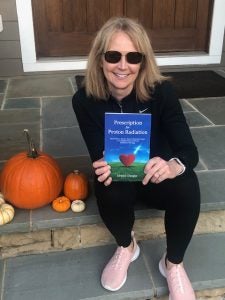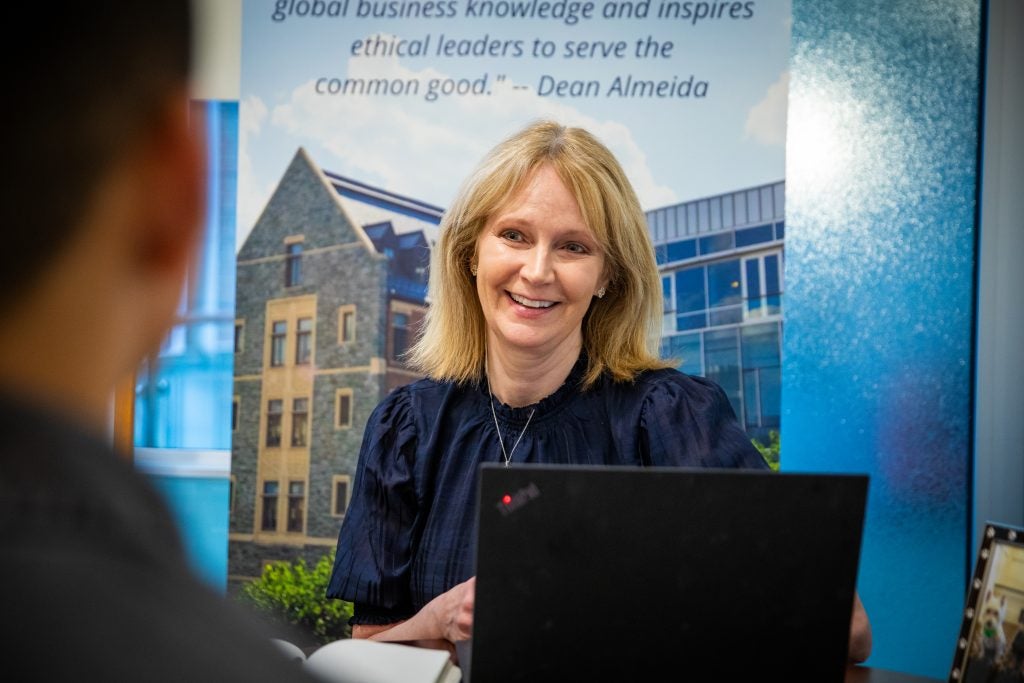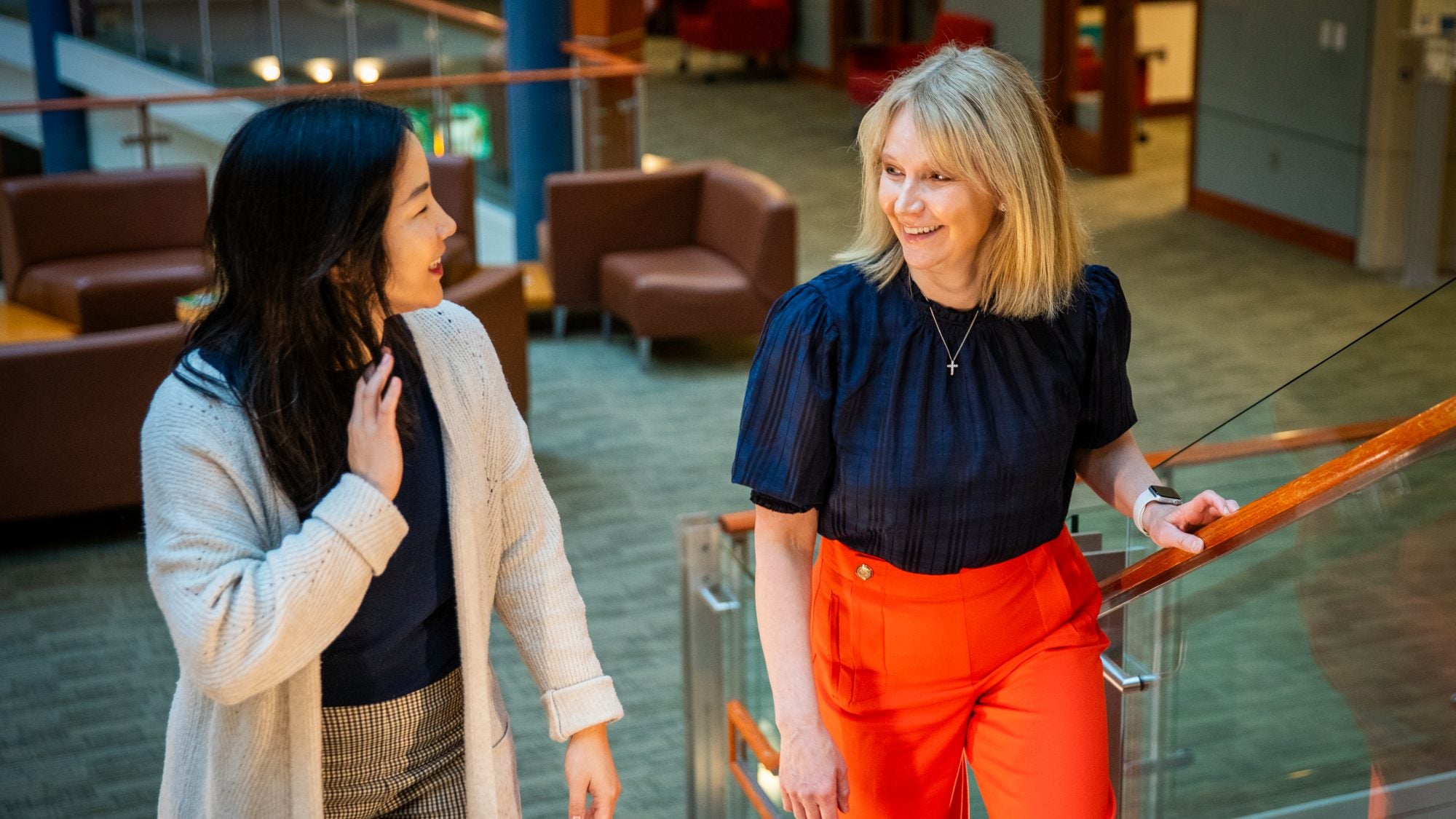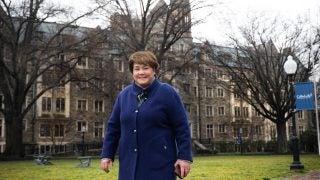This story is part of a Georgetown Faces, a storytelling series that celebrates the beloved figures, unsung heroes and dedicated Hoyas who make our campus special.

Denise Durgin (G’16) spends her days helping students and alumni achieve their professional goals. The assistant dean leads a team that helps graduate and executive-level students studying business identify career pathways, leverage their talents and lead with authenticity and clarity.
She first came to Georgetown in 2015 as an Executive Master’s in Leadership student in the McDonough School of Business, where she found a strong sense of community within her cohort and across the school. Two years later, she returned to the Hilltop as a career coach, and in 2022, she accepted her current role as assistant dean.
“I always felt comfortable and rooted in a high moral compass knowing Georgetown is guided by our Jesuit values and service to others,” she said. “I could not wait to have the chance to come back home to Georgetown.”
Durgin’s commitment to service is fueled by her own journey of perseverance. During her first year at Georgetown as a career coach, she received a call that she was diagnosed with cancer.
“Like most cancer patients, when I got the call that said, ‘Your biopsy is positive for cancer,” it was life-altering. I thought, “What do I do next?”
Durgin was ultimately prescribed proton radiation to treat her cancer. But before they could begin treatments, she was denied by her insurance company and spent months navigating the healthcare system to gain access to prescribed medical care.
“Together with my medical team over the course of two months, I was able to get my case overturned and insurance agreed to pay for my treatments,” she said. “That is when my pain became my purpose.”

After recovery, she was inspired to help other patients facing similar experiences, which resulted in her book, Prescription for Proton Radiation. Through testimonials of cancer survivors – including her own story – Durgin shares insights into choosing treatment options, navigating insurance processes and how to advocate for yourself along the way.
Looking ahead, she draws from her personal experiences to uplift and empower students to persevere through adversity, pursue their passions and define their own success.
Learn more about Durgin’s service mindset, on being “Boston Strong,” and her sources of inspiration here at Georgetown and beyond.
What I wish people knew about my job: I care so much about those I am privileged to serve at Georgetown. Our work is highly customized and we dig down deep to figure out what could be holding a person back and help each person unblock the blind spot or instill hope that their next role, promotion or position is around the corner.
Why I wrote my book: As a business professional, I like to be prepared and organized for myself and those I serve. Yet, cancer changes everything in a minute without a playbook to navigate the experience. When my recommended treatment for proton radiation was denied by insurance, I worked with my medical team to overturn the ruling and gain access to the services I needed. But as I completed my treatment, I thought about the people in the waiting room who were alone. Who was helping them? I knew as soon as I was healed, I wanted to help others learn about radiation treatments and effectively navigate the healthcare system.
My coaching philosophy: With 28 years of experience in hospitality leadership before coming to Georgetown, I approach coaching with a service mindset. First, I establish clear goals with students and alumni by asking: What would success look like in our time together? What specifically do you want to accomplish? This way our goals are measurable and we know the time was well spent. I ask open-ended questions so that people have time to think about what is possible. If someone is trying to land a new role or a promotion, I envision myself in the bleachers rooting for each person I work with as they accomplish their goals.




